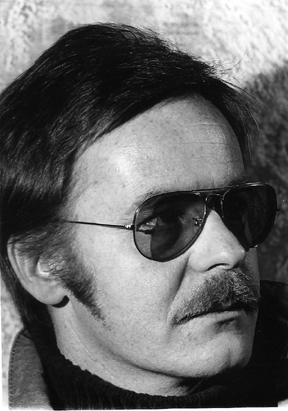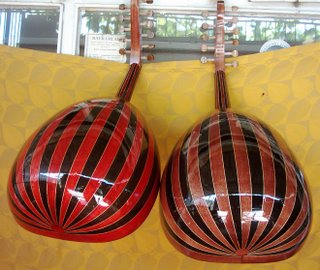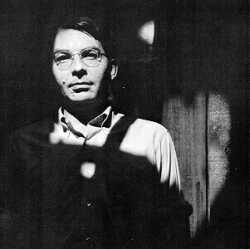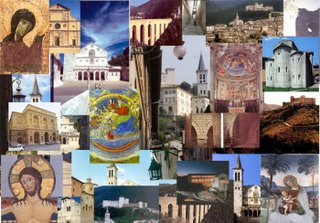This arrived during dinner, from Josh--again, with responses from me.
All right, since you've led the conversation back to your own backyard, I'll follow you there. What I don't understand is your contention—one you've made before—that poets are to blame if they don't have many readers, and that apparently there's a larger readership available if one is willing to write to the tastes of undergraduates and teens (that's the audience you single out). Well, let's see. I would say that
some poets don't have many readers because of the sorts of poems they write, but that the reason most poets don't have many readers is because of the ways that poetry gets taught in this country--or not taught, as the case may be--from grade school onward. If poetry were taught, for example, as part of the national patrimony, with the assumption that elementary students should know their Whitman and Dickinson, Hayden and Hughes, because these are our great national poets, just as French students and Italian students learn Baudelaire or Petrarch early on, there would probably end up a wider audience for poetry. I also tend to agree with (gasp) Dana Gioia that an emphasis on performance, rather than explication, would help. I can think of many poems whose primary appeal to me does not lie in "figuring them out" but rather in "giving them voice," although in practice the latter always involves more of the former than one realizes, at least consciously.
My first response to that is, isn't 99.9 percent of our pop culture already devoted to the whims of teens and twentysomethings? But more to the point: if I wanted to reach a mass audience, I wouldn't write poems! Poetry, at least the kind I care about, demands qualities of attention that I doubt the mass of people will ever be willing to bring to reading, at least reading for entertainment's sake. Hence my argument that, as you put it, sometimes "poets are to blame if they don't have many readers." No? If you don't write for a mass audience, you can't really complain about not having one. Fit audience though few seems to be what you're after, honestly speaking. Although I must warn you: Jacqueline Osherow, one of my favorite contemporary poets, is as sneakily "accessible" as Robert Frost was. I've taught her successfully to teens, twenty-somethings, aging Baby Boomers, and my own 97 year old grandmother. She doesn't have the readers that she deserves, but she's by no means to blame.
It makes more sense to me to do the kind of critical, editorial, and scholarly work that will direct the pool of readers already extant to the kinds of poems I care about—Johnson's poems, for instance.
Well, yes and no. I teach RJ's poems to undergraduates, graduates, and the teachers in my NEH seminars
, some of whom go on to teach them to their high school students. (A 10th-grade classroom in rural Appalachia spent a few sessions on Beam 10 of
ARK thanks to me--and their teacher--this fall.) When I found out about an upcoming NEH seminar on Milton, I contacted the professor leading it to find out if he knew about
Radi Os. The pool of readers for
every kind of poetry grows when poetry is taught well; in fact, current research by the Poetry Foundation suggests, apparently, that good K-12 teaching is the single biggest variable in adult attention to poetry. So I try to teach well, and teach others to teach well--but I find that this sort of work only rarely involves the kinds of writing or thinking that go on in scholarly journals, and I know that my teachers are desperate to know
where they can find out about how to read and teach contemporary poetry.
One sort of "critical, editorial, and scholarly work" that is desperately needed, then, is work that brings a wider variety of poems
and a wider variety of reading skills and strategies to those K-12 classrooms, via their teachers and via the educational establishment. This can happen by educating teachers, as I've been doing; it could also use a big push
chez the AP, both in terms of the AP courses and (of course) in terms of the AP tests. If anyone knows how I can do this, or how anyone else can, please let me know!
Getting good essays published on the poets you love is also desperately important. But what essays, and where, and on whom? This I don't really know. Maybe you, as a current graduate student, have a better idea. My hunch is that the essays have to make some impact on one's own job prospects, and on those of the folks who read them, in order to have any real impact, but even then, who knows? Marjorie Perloff writes about Susan Howe for APR, and suddenly we're all talking about her, in part because the essay was a great piece of advocacy. Ditto for Perloff on Niedecker, I think in the same venue. Pieces that bring together poets across scholastic boundaries can make a difference, like Kathrine Varnes's wonderful talk on Julia Alvarez, Kathleen Fraser, and Anne Sexton at the Narrative and Formalist Poetries conference a decade ago. (That got me reading Alvarez's "33," and then teaching it, and then teaching it to teachers, none of which I would have done if it weren't for the fresh perspective KV brought, and her general fabulousness.) It would be nice to find a concerted effort underway, by all of us, to make lesson plans and other good classroom material about the poets we love available to each other, and to teachers: I know the
MAPS site is a good start in this direction, and Al Filreis's
English 88 materials, but more could certainly be done.
The only ready path I can see toward actually growing the readership for poetry is through my work as a teacher. And as a good teacher you've no doubt listened well to what it is your students like. But I also imagine that, as a good teacher, you've worked hard to stretch that liking, and introduce students to work outside their comfort zone, and perhaps even made a few converts to the work of Johnson and others whose complex linguistic textures could never be confused with the poetry of personal authenticity that I associate with slams.True on all counts, Josh.
For the moment I'm mostly concerned with imagining ways in which me and my fellow poets might come together to make stuff happen, and perhaps to grow attention for the small press work that challenges and refreshes me the most. Ways we might support each other. New paths for the energy that too often expresses itself as bile, injured narcissism, and snark. Though I'll take even that kind of energy over slackness and gentility any day.
So what are some things you could do? Off the top of my head, I'd say that there is precious little material out there that teaches outsiders how to read that sort of small press work for (and with) pleasure. Most "introduction to poetry" training won't do the trick; the reading strategies I deploy on a Robert Hayden poem don't get me far with one of Arielle Greenberg's, say. We could use a LOT of articles in
College English and in journals aimed at teachers about how and why to read and teach the work that you love; we need essays and textbooks and lessons that guide potential readers toward such work as steadily and brilliantly as Brooks and Warren guided theirs to Donne and Eliot, with as little specialized and theoretical terminology in them as possible. (This is a rhetorical strategy, not a moral judgment.)
What else? We need teacher training seminars like mine, but bigger and more frequent and more local; we need contact with Education departments and Teaching Literature courses they offer; as I said above, we need to infiltrate the conventions and planning discussions of the AP and SAT and other standardized-test institutions, because teachers
do teach to those tests, and any reading strategies and textual suggestions that don't help students perform better will probably have a short shelf-life.
You'll note that I've wandered far from the world of small press publication, ad hoc magazines, and even scholarly journals. I don't know any of those worlds well enough to know what would make a difference for poetry in any of them: if publishing chunks of your own dissertation, for example, will help any of the poets you write about in any significant or lasting way. (Not an insult: I just don't know. Did it help RJ that I wrote about him in
Contemporary Literature and
Postmodern Culture and the
Dictionary of Literary Biography? It probably didn't hurt, but I suspect that it did more for my career, alas, than for his.)
So: a snark-free response, Josh. What do you think?


















